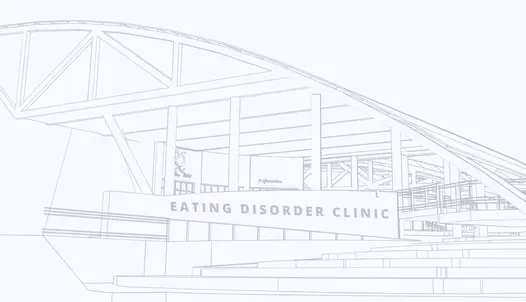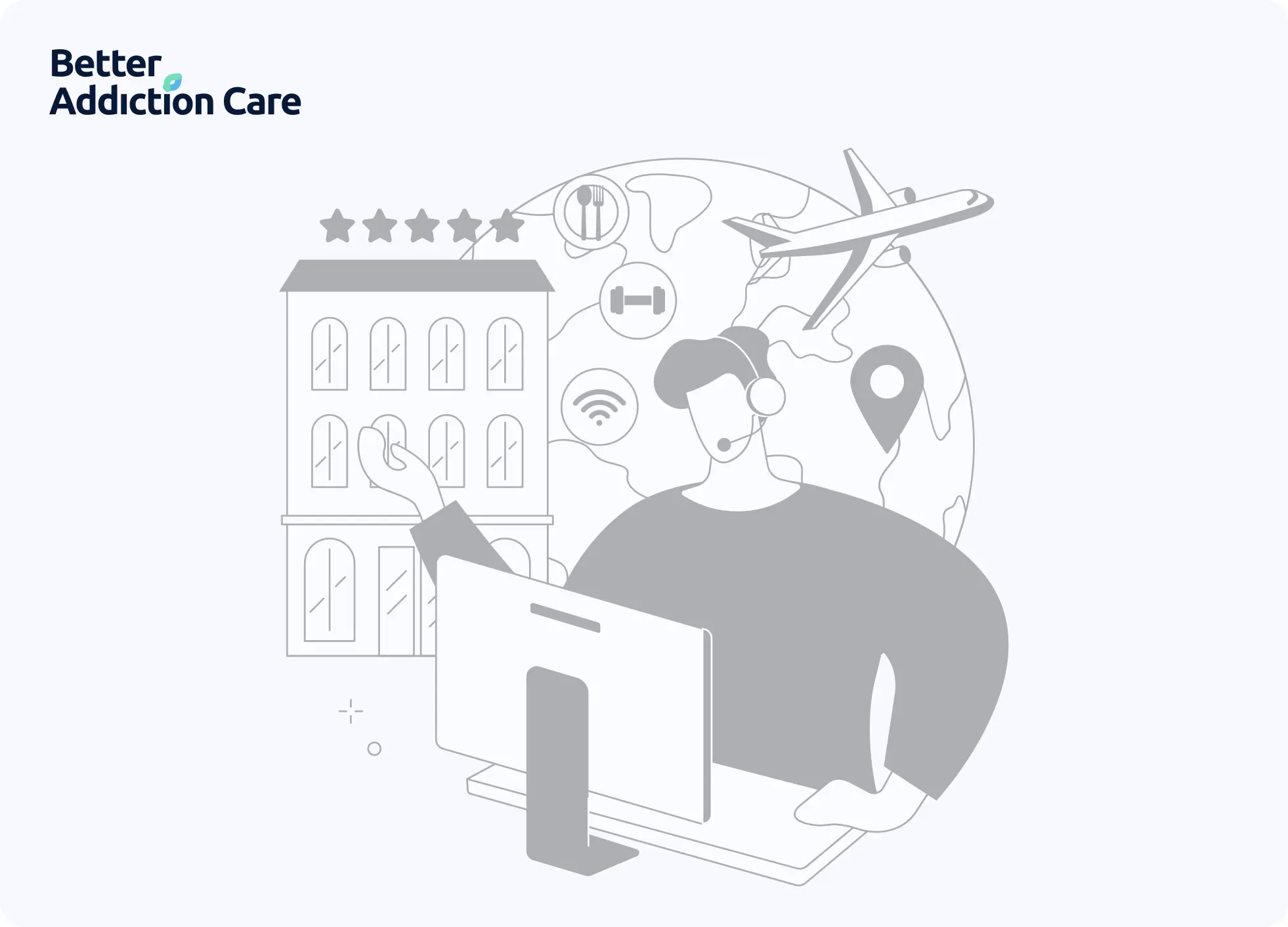Monte Nido - Eating Disorder Center of San Diego

Overview
Monte Nido - Eating Disorder Center of San Diego is a substance abuse treatment center for people seeking treatment near San Diego County. As part of their treatment modalities for recovery, Monte Nido - Eating Disorder Center of San Diego provides individual psychotherapy during treatment. Monte Nido - Eating Disorder Center of San Diego is located in Solana Beach, California, accepting private health insurance for treatment.
Monte Nido - Eating Disorder Center of San Diego at a Glance
Payment Options
- Private health insurance
- Cash or self-payment
Assessments
- Comprehensive mental health assessment
Age Groups
- Adults
- Young adults
Operation
- Private for-profit organization
Accreditations
The Joint Commission:

The Joint Commission, previously known as JCAHO, is a nonprofit organization that accredits rehabilitation organizations and programs. Established in 1951, its mission is to enhance the quality of patient care and showcase excellence in healthcare delivery.
Treatment At Monte Nido - Eating Disorder Center of San Diego

Conditions Treated
Mental health treatment:
Mental health facilities offer a safe space for individuals to get specialized care. Trained experts create personal plans using therapies, possibly including medication. The goal is to help individuals cope better and lead fulfilling lives, with constant support and a community feel.

Levels Of Care
Intensive outpatient treatment:
Intensive outpatient (IOP) supports clients in maintaining their sobriety by providing tailored, high-quality care that adapts to their changing requirements. Clients participate in numerous weekly treatment sessions, generally receiving between nine to twenty hours of outpatient care. As clients achieve stability, the treatment frequency and intensity gradually diminish. Many intensive outpatient rehabilitation centers offer a range of services, including addiction counseling, training in life skills essential for recovery, and medication-assisted treatment (MAT). Additionally, evidence-based complementary therapies are frequently integrated into the program.
Luxury Treatment:
Luxury rehab centers offer upscale treatment environments for individuals seeking recovery from addiction or other behavioral disorders. These centers combine top-tier medical and therapeutic care with lavish amenities, ensuring patients receive the utmost comfort and personalized attention. Often set in picturesque locations, these centers prioritize privacy, holistic well-being, and world-class facilities to facilitate a rejuvenating healing experience.
Aftercare:
Aftercare refers to the structured support and programs offered to individuals after completing an initial treatment phase for substance abuse or other disorders. Recognizing that recovery is an ongoing process, aftercare provides continued counseling, skill-building, group therapy, and resources to help individuals maintain sobriety, manage triggers, and reintegrate into daily life, reducing the risk of relapse and ensuring long-term success in recovery.
Outpatient:
Outpatient treatment in a rehab center offers flexible therapy sessions, typically ranging from 1-3 hours per week, allowing individuals to continue daily activities while receiving care. In contrast, intensive outpatient programs demand a more rigorous commitment, often involving 9-15 hours weekly, providing a more immersive therapeutic environment without the need for inpatient stays.
Hospital inpatient treatment:
Inpatient treatment comprises a thorough residential therapeutic program, during which patients reside on-site for a period generally lasting from 30 to 90 days. This immersive setting provides organized assistance, guaranteeing safety and a dedicated approach to recovery. The array of therapies available encompasses individual and group counseling, cognitive-behavioral therapy, holistic interventions, family therapy sessions, and experiential therapies. The primary goal is to address the physical, emotional, and psychological facets of addiction or mental health disorders, establishing a strong foundation for enduring healing.

Treatment Modalities
Individual psychotherapy:
Individual therapy, often referred to as psychotherapy or counseling, is a one-on-one therapeutic interaction between a trained therapist and a client. It provides a confidential space for individuals to explore their feelings, beliefs, and behaviors, working through challenging memories, experiences, or emotions. The therapist facilitates self-awareness, promotes personal growth and insight, and offers coping strategies to manage specific issues like stress, anxiety, depression, and other life challenges. The ultimate goal is to improve the individual's mental well-being and enhance their overall quality of life.
Cognitive Behavioral Therapy:
Cognitive Behavioral Therapy (CBT) is a therapeutic approach that emphasizes the interconnectedness of thoughts, emotions, and actions. It promotes healthy reactions to thoughts and emotions, steering individuals away from harmful responses such as substance abuse. Proven effective for various addiction recoveries, CBT enhances an individual's self-awareness and self-control. Through CBT, individuals learn to better gauge their emotional well-being, communicate more effectively, and handle stress without resorting to drugs or alcohol.
Dialectical Behavior Therapy:
Dialectical Behavior Therapy (DBT) is a cognitive-behavioral approach specifically designed to help individuals regulate emotions, enhance interpersonal effectiveness, develop distress tolerance, and increase mindfulness. In addiction treatment, DBT equips individuals with practical skills to manage triggers, cope with stressors, and build a life worth living without resorting to substance use. By addressing both the emotional and behavioral challenges of addiction, DBT fosters personal growth and long-term recovery.
Eating Disorder Treatment:
Eating Disorder Treatment refers to a specialized and compassionate approach to helping individuals who struggle with various forms of disordered eating, such as anorexia nervosa, bulimia nervosa, or binge-eating disorder. This treatment encompasses a range of therapeutic interventions aimed at addressing the physical, emotional, and psychological aspects of these conditions. It typically involves medical assessment, nutritional counseling, psychotherapy, and sometimes medication, all tailored to the individual's unique needs.
Group counseling:
Group therapy entails therapeutic sessions conducted in a collective setting rather than one-on-one. It encompasses various modalities, from support groups and experiential therapy to psycho-education and beyond. The approach focuses on treatment and emphasizes the dynamic interactions and shared experiences among group members.
Creative Arts Therapy:
Creative Arts Therapy is a therapeutic approach that integrates visual arts, music, drama, dance, and other creative processes to foster self-expression, emotional healing, and personal development. By tapping into the transformative power of the arts, therapists help individuals explore and communicate emotions, navigate challenges, and achieve greater self-awareness. It is suitable for individuals of all ages and offers a unique, non-verbal avenue to address psychological and emotional needs.
Equine Therapy:
Equine Therapy, also known as Horse Therapy or Equine-Assisted Therapy, encompasses various treatments involving activities with horses to promote physical, emotional, and mental growth in individuals with multiple conditions. By interacting with horses, individuals can develop a range of skills, such as self-awareness, self-efficacy, and emotional regulation, along with improving communication and socialization skills. This therapeutic approach is utilized to assist individuals facing mental health issues, developmental disorders, or physical disabilities under the guidance of a professional therapist and an equine specialist.
Experiential Therapy:
Experiential therapy is a form of therapy in which clients are encouraged to surface and work through subconscious issues by engaging in real-time experiences. Experiential therapy departs from traditional talk therapy by involving the body, and having clients engage in activities, movements, and physical and emotional expression. This can involve role-play or using props (which can include other people). Experiential therapy can help people process trauma, memories, and emotion quickly, deeply, and in a lasting fashion, leading to substantial and impactful healing.
Life Skills:
Life skills training encompasses essential skills for individuals to navigate daily challenges successfully. This training includes time management, career guidance, money management, and effective communication, which are crucial for holistic addiction recovery. By mastering these skills, individuals are not only able to live substance-free but also thrive. Life skills training thus provides the practical tools for functional living in society, setting clients on a path toward lasting sobriety and success in life.
Nutrition Therapy:
Medical Nutrition Therapy (MNT) is a personalized dietary approach to manage medical conditions and improve health. Spearheaded by registered dietitians or professional nutritionists, MNT involves the formulation of tailored diet plans to address specific health issues, promoting overall physical and mental well-being. Through MNT, individuals are empowered to make informed food choices, which play a pivotal role in their healthcare journey.
Marital/couples counseling:
Whether a marriage or other committed relationship, an intimate partnership is one of the most important aspects of a person's life. Drug and alcohol addiction affects both members of a couple in deep and meaningful ways, as does rehab and recovery. Couples therapy and other couples-focused treatment programs are significant parts of exploring triggers of addiction, as well as learning how to build healthy patterns to support ongoing sobriety.
Trauma-related counseling:
Trauma therapy addresses the underlying emotional and psychological wounds that may contribute to an individual's substance abuse. Through a combination of psychotherapy and coping strategies, individuals are aided in processing past traumatic experiences, understanding the impact of trauma on their current behavior, and developing healthier coping mechanisms. This holistic approach fosters resilience, aids in the resolution of trauma, and is fundamental in supporting individuals on their path toward sustained recovery from addiction.
Ancillary Services
Special Programs
- Persons with eating disorders
- Clients who have experienced trauma

Additional Locations
Contact Information
DISCLAIMER: The facility name, logo and brand are the property and registered trademarks of Monte Nido - Eating Disorder Center of San Diego, and are being used for identification and informational purposes only. Use of these names, logos and brands shall not imply endorsement. BetterAddictionCare.com is not affiliated with or sponsored by Monte Nido - Eating Disorder Center of San Diego.



